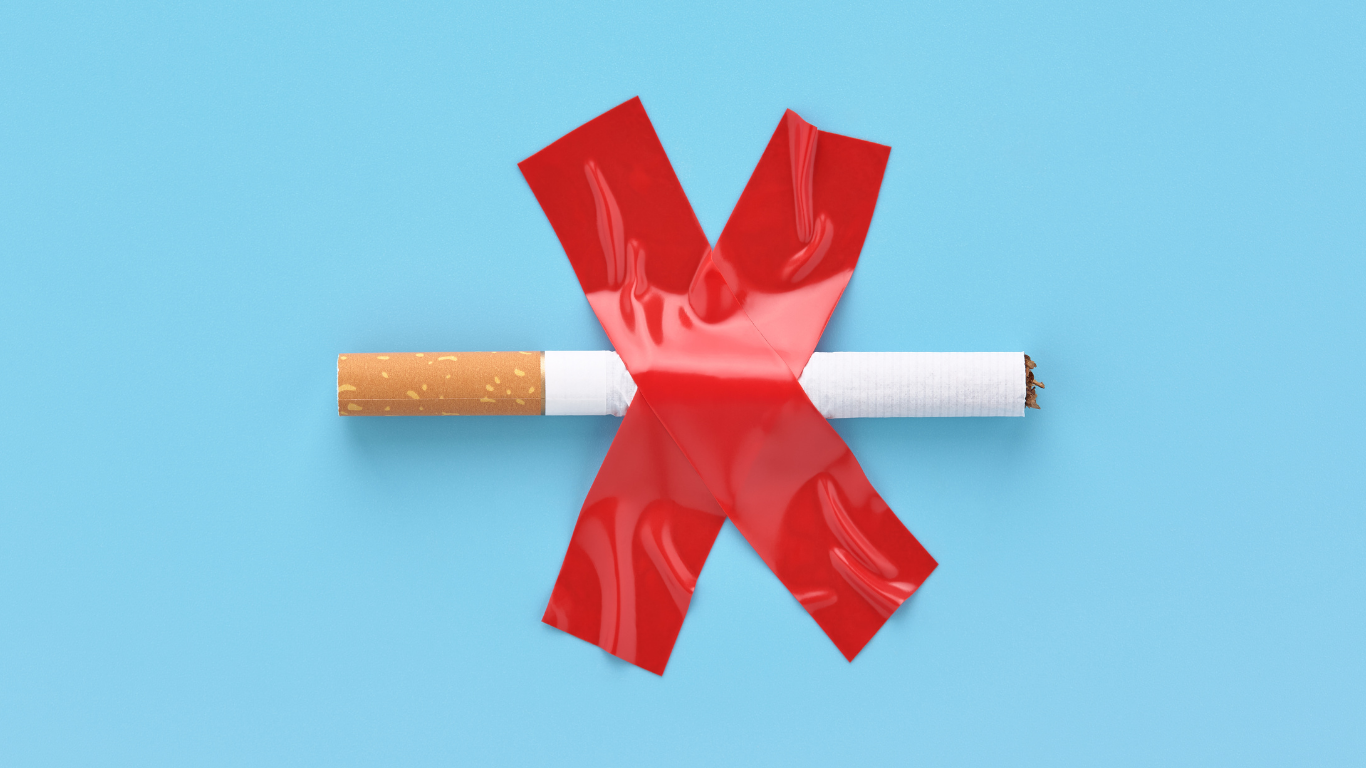How Smoking & Vaping Affect Dental Implants: What You Should Know
November 28, 2025
Key Takeaways
- Nicotine slows healing, bone growth, and gum recovery.
- Smoking increases the risk of peri-implantitis and implant failure.
- Vaping is not a safe alternative, its chemicals still irritate tissues.
- Best results come from stopping nicotine 2–4 weeks before surgery and 4–8 weeks after.
- Even temporary quitting significantly improves implant success.
Dental implants are one of the most reliable and long-lasting tooth-replacement options available, but their success depends heavily on healthy bone, strong gum tissue, and proper healing. Smoking and vaping introduce chemicals that directly interfere with all three, putting implant patients at a higher risk of complications.
This blog breaks down how smoking and vaping affect implant healing, infection risk, long-term success, and what patients can do to protect their implants.
Smoking and vaping significantly increase the risk of dental implant failure because nicotine reduces blood flow, slows bone growth, delays gum healing, and increases inflammation. These effects make it harder for the implant to fuse with the bone and greatly raise the chances of peri-implantitis and long-term complications.
Understanding how nicotine affects your implants helps you prepare, avoid preventable complications, protect your investment, and ensure long-lasting results. Even small changes, like temporarily quitting, can dramatically improve healing.
How Nicotine Affects Healing
Nicotine, whether inhaled from cigarettes, e-cigs, or smokeless tobacco, has powerful biological effects that slow and disrupt healing:
- Reduces blood flow, depriving the implant site of oxygen and nutrients
- Slows bone growth, which is essential for osseointegration
- Delays gum tissue healing, making infection more likely
- Causes chronic inflammation, weakening the body’s natural defenses
Because implants rely on your bone fusing with the titanium post, anything that slows healing increases the chance of early implant failure.
Smoking Increases the Risk of Peri-Implantitis
Peri-implantitis is a gum infection around the implant, similar to periodontal disease. Smokers are significantly more likely to develop:
- Pain and swelling
- Bone loss around the implant
- Gum recession
- Implant loosening
Peri-implantitis is a leading cause of late implant failure, and smoking is one of its strongest risk factors.
Vaping Isn’t a Safe Alternative
Many people assume vaping is safer, but e-cigarette vapor still contains:
- Nicotine
- Propylene glycol
- Heavy metals and chemicals
Even nicotine-free vapes can trigger inflammation and slow healing. The effects on implant success are very similar.
Smoking Before Surgery Increases Complications
Patients who smoke are more likely to experience:
- Increased bleeding
- Poor clot formation
- Delayed wound closure
- Higher infection risk
- Difficulty achieving osseointegration
Smoking After Surgery Greatly Increases Failure Rates
Smoking during early healing can:
- Break down blood clots
- Interfere with bone bonding
- Irritate the surgical site
- Introduce bacteria
Even one cigarette in the early healing phase can disrupt the process.
How Long Should You Stop Smoking?
Most specialists recommend:
- Stop smoking 2–4 weeks before surgery
- Avoid nicotine for 4–8 weeks after placement
What If You Can’t Quit Completely?
Not everyone can stop overnight. Strategies include:
- Using patches or gum (with dentist approval)
- Reducing frequency
- Avoiding smoking entirely during the first 2–4 weeks
- Maintaining excellent hygiene
- Keeping regular cleanings
- Following all post-op instructions
Step-by-Step Guide
A simple pre-implant plan:
- Reduce nicotine use.
- Stop smoking 2–4 weeks before surgery.
- Follow all surgical instructions.
- Avoid nicotine for 4–8 weeks post-surgery.
- Attend follow-ups and maintain cleanings.
FAQs
Q: Can smokers get dental implants?
Yes, but the risks are higher, and surgeons usually recommend nicotine cessation before and after surgery.
Q: Is vaping safer than smoking for implants?
No. Chemicals in vape aerosol still delay healing and irritate tissues.
Q: What happens if I smoke right after implant surgery?
It can break clot formation, interfere with bone bonding, and increase failure risk.
If you live in our area and smoke or vape, our implant specialists can help you plan safely for your procedure. We offer personalized guidance and healing protocols tailored to local patients in the community.
Ready to replace a missing tooth? Schedule your implant consultation today and get personalized guidance, even if you're not ready to quit smoking completely.
Conclusion
Smoking and vaping don’t make dental implants impossible, but they do increase the risk of complications, infections, and implant failure. The more you can reduce or eliminate nicotine use before and after your procedure, the better the chances your implants will heal properly and last for many years. Your dental provider can help you create a personalized plan to improve success.




